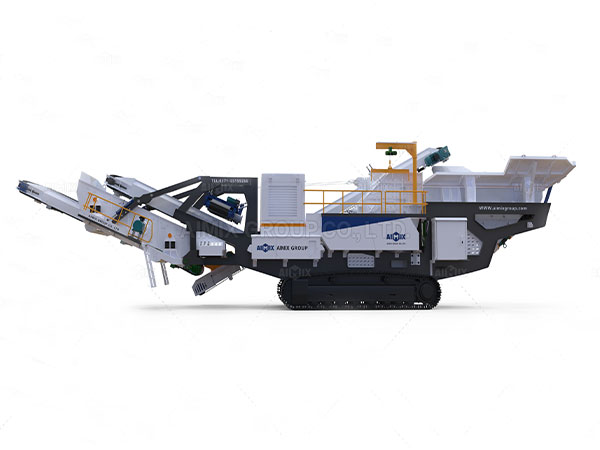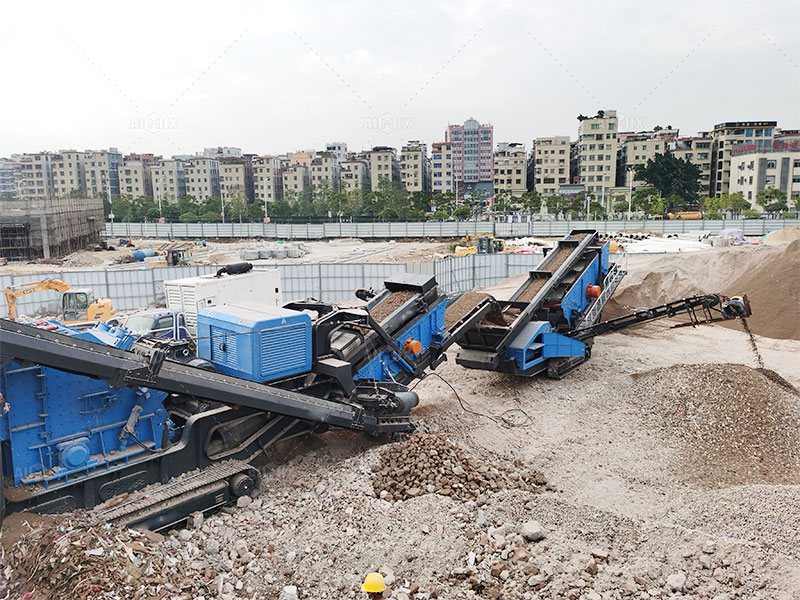When investing in a mobile crushing plant, comparing prices from different suppliers is crucial to ensure you get the best value for your money. However, navigating through various offers and understanding the factors influencing pricing can be challenging.
1. Define Your Requirements:
Before diving into price comparison, clearly define your requirements and operational needs. Consider factors such as:
- Desired production capacity
- Material specifications
- Mobility requirements (track-mounted or wheel-mounted)
- Environmental regulations compliance
- Maintenance and service support
Having a clear understanding of your requirements will enable you to evaluate mobile crusher price offerings more effectively.

2. Request Detailed Quotations:
Reach out to the selected suppliers and request detailed quotations for the mobile crushing plant price meeting your specifications. Ensure that the quotations include:
- Equipment specifications (crusher model, feeder size, conveyor dimensions, etc.)
- Mobility features (track or wheel-mounted, transport dimensions)
- Optional extras (dust suppression system, remote monitoring capabilities)
- Warranty terms and after-sales service provisions
- Delivery timeline and logistics details
- Payment terms and financing options
A comprehensive quotation will provide insights into the overall package offered by each supplier.
3. Evaluate Equipment Specifications:
Compare the equipment specifications provided in the quotations. Assess whether the offered crushing plants meet your requirements in terms of production capacity, material handling capabilities, and technological features. Pay attention to details such as crusher type, power consumption, and automation level, as these factors can impact operational efficiency and long-term costs.

4. Consider Total Cost of Ownership (TCO):
Beyond the initial purchase price, consider the total cost of ownership (TCO) associated with each mobile crushing plant. TCO encompasses expenses incurred throughout the equipment’s lifecycle, including:
- Maintenance and repair costs
- Spare parts availability and pricing
- Fuel or electricity consumption
- Operational downtime and productivity losses
- Resale value or depreciation
By assessing TCO, you can make more informed decisions regarding the long-term economic viability of each investment.
5. Negotiate and Clarify Terms:
Engage in negotiations with the suppliers to optimize 200 tph crusher plant price and terms according to your budget and preferences. Clarify any ambiguities or discrepancies in the quotations to ensure a transparent and fair comparison. Discuss potential discounts, financing options, or customization possibilities offered by each supplier.
6. Seek References and Reviews:
Research the reputation and track record of each supplier by seeking references from previous customers and reading online reviews or testimonials. A supplier’s reliability, customer service quality, and adherence to delivery commitments can significantly influence the overall value proposition.
7. Factor in Additional Services and Support:
Evaluate the additional services and support provided by each supplier beyond the equipment sale. Consider aspects such as installation assistance, operator training programs, ongoing technical support, and warranty coverage. A supplier that offers comprehensive support services can contribute to smoother project implementation and enhanced equipment performance.
8. Perform Cost-Benefit Analysis:
Finally, perform a cost-benefit analysis comparing the offerings from both suppliers. Consider the upfront investment, TCO implications, equipment features, and supplier reputation to determine the best overall value proposition for your specific requirements.
In conclusion, comparing mobile impact crusher price involves a systematic assessment of equipment specifications, total cost of ownership, supplier reputation, and additional services offered. By following the steps outlined in this guide and conducting thorough due diligence, you can make informed decisions that align with your operational objectives and budget constraints.
